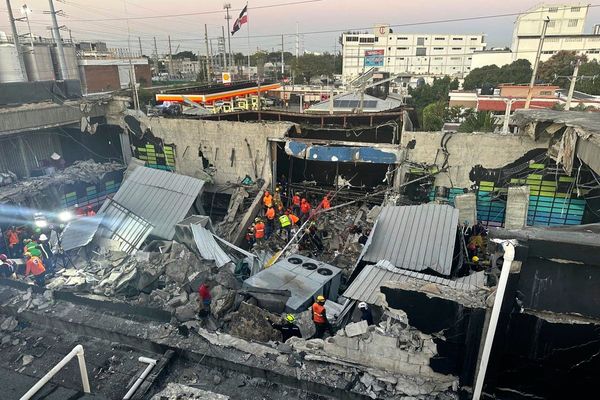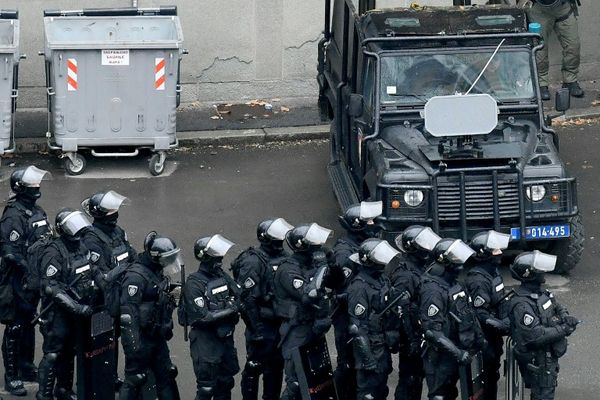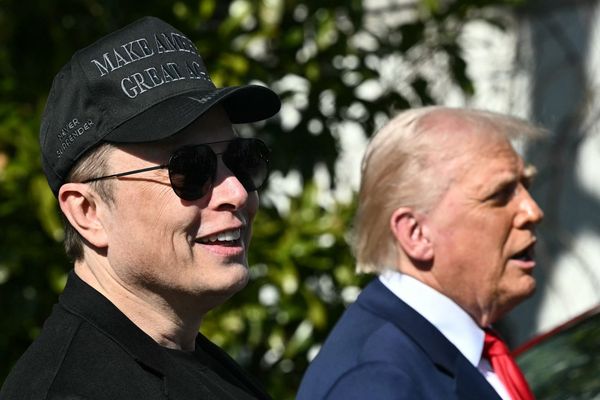
West African heads of state have said all options including the use of force remained on the table to restore constitutional order in Niger after the July 26 coup, and ordered the activation of its standby force.
The remarks came as the 15-member Economic Community of West African States (ECOWAS) met in Nigeria’s Abuja on Thursday for an emergency summit to discuss responses to last month’s military takeover in Niger, after the coup leaders defied their earlier threat to use force to restore democracy.
In closing remarks, the bloc pledged to enforce sanctions and travel bans on those preventing the return to power of democratically elected President Mohamed Bazoum.
“No option is taken off the table, including the use of force as a last resort,” said Nigeria’s President Bola Tinubu, the ECOWAS chair, at the end of the summit.
“We remain steadfast in our commitment to supporting Niger in the journey towards peaceful democratic stability,” he said.
“I hope that through our collective effort we can bring about a peaceful resolution as a roadmap to restoring stability and democracy in Niger. All is not lost yet.”

Since the July 26 overthrow of Niger’s democratic leadership, the coup plotters have refused to relinquish power and release detained Bazoum, ignoring an August 6 deadline from ECOWAS to reinstate him.
The meeting in Abuja began hours after Niger’s coup leaders appointed a new interim government. Mahamane Roufai Laouali, cited as “secretary general of the government”, named 21 ministers, without specifying any further government plans.
After Tinubu spoke, an official communique was read out which included a resolution asking the bloc’s defence chiefs to “activate the ECOWAS Standby Force with all its elements immediately”.
Another resolution spoke of ordering “the deployment of the ECOWAS Standby Force to restore constitutional order in the Republic of Niger”, immediately followed by another that spoke of restoring such order “through peaceful means”.
ECOWAS defence chiefs last week drew up plans for possible military intervention in Niger, which the heads of state discussed during Thursday’s summit. The summit communique gave no indication of when or under what circumstances a deployment within Niger might take place.
It is unclear if there were any representatives from Burkina Faso, Guinea and Mali, whose military heads of state have sided with Niger, at the summit. However, the presidents of Mauritania – a founding ECOWAS member which withdrew from the bloc in December 2000 – and Burundi were in attendance, according to Al Jazeera’s Ahmed Idris, reporting from Abuja.
Idris said a source close to one of the mediation missions sent to Niger told Al Jazeera that the coup leaders want sanctions eased to aid the flow of medicine and food supplies and restoration of electricity.
But it remains unclear if ECOWAS will accede to any such demands as the bloc continues to seek Bazoum’s reinstatement.
“If the coup is allowed to succeed, it could dent the image of ECOWAS and make it look weak … and that could pose a serious threat to democracy, something that leaders here are eager to avoid,” Idris said.
Bazoum’s party has said the detained leader and his family are being held at the presidential residence without electricity or running water and had gone days without fresh food. This led to United Nations Secretary-General Antonio Guterres call Bazoum’s “his immediate, unconditional release and his reinstatement as Head of State,” a UN spokesperson said on Wednesday.
‘A lot is at stake’
Military intervention is something ECOWAS officials have said would be a last resort.
The bloc also said it would enforce all measures, in particular, “border closures, travel bans, and assets freeze, on all persons or groups of individuals whose actions hinder all peace efforts in ensuring the smooth and complete restoration of constitutional order”.
Earlier, Sadeeq Garba Shehu, a security analyst and adjunct professor at the Marshall European Centre for Security Studies, said the ball was in ECOWAS’s court after the coup leaders “called the bluff” on the bloc’s seven-day deadline.
“It’s a very decisive moment for ECOWAS and its leaders,” he told Al Jazeera from Abuja. Pressing ahead with the option of the use of force “is a position that is fraught with dangers and uncertainties”, Shehu said.
“First, will there be acceptance by all the members to put their money where their mouth is? How many of the ECOWAS members are ready to do that? How many are ready to finance that?” Shehu added, noting that West African leaders had to also consider domestic pressures from their countries’ own populations.
But ECOWAS could still stick to its decision to see a democratic government in place in Niamey, Idris said.
“A lot is at stake because the way things are, people are really concerned about the spate of coups in West Africa, five in less than three years … in Burkina Faso and Mali, democratic timelines have been shifted several times and now we have Niger,” he said. “The situation in those countries has emboldened the coup leaders in Niger … and could encourage ambitious soldiers [elsewhere] to take up arms and depose democratic governments.”
‘Time for public diplomacy’
On Wednesday, former Nigerian central bank Governor Sanusi Lamido Sanusi met coup leaders in the Nigerien capital, Niamey, offering a glimmer of hope for dialogue after previous ECOWAS missions were spurned.
And after a meeting with Nigerian President and ECOWAS Chair Bola Tinubu, Sanusi told Nigerian press in Abuja that “interventions are ongoing and will continue”.
“This is a time for public diplomacy. It’s not a matter that we leave to governments. All Nigerians, all Nigeriens need to be involved to find a solution that works for Africa, for Niger, for Nigeria and for humanity,” he said.
A former emir of the northern Nigerian city of Kano, Sanusi is also a leader of the Nigerian order of the Tijaniyyah, a Sufi Muslim sect with origins in Algeria but with a large following across West Africa, including Niger.
He did not respond to Al Jazeera’s requests for comment on the mission to Niamey.
Any escalation would further destabilise West Africa’s Sahel region, one of the world’s poorest, where long-running violence from armed groups has displaced millions and stoked a hunger crisis.
Niger had recently fared better than its neighbours Mali and Burkina Faso in stemming the violence. It also became an increasingly important Western ally for fighting armed groups after coups in the other two countries between 2020 and 2022, led to strained relations with traditional partners.
ECOWAS, the UN and Western countries have been putting pressure on the coup leaders to stand down, while military governments in neighbouring Mali and Burkina Faso have said any military intervention in Niger would be seen as a declaration of war on them.
In Burkina Faso’s capital Ouagadougou, resident Issouf Ouedraogo felt it made no sense for his country’s new leaders to support the Niger coup because the contexts were different.
“Burkina was in a situation of degradation and acute insecurity,” he said in reference to the frustrations that stoked two coups there last year.
“Niger, on the other hand, was in a stable situation,” he noted.







